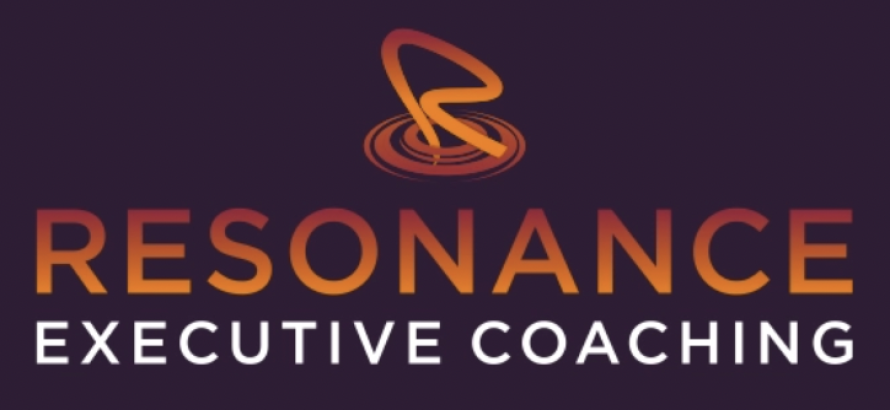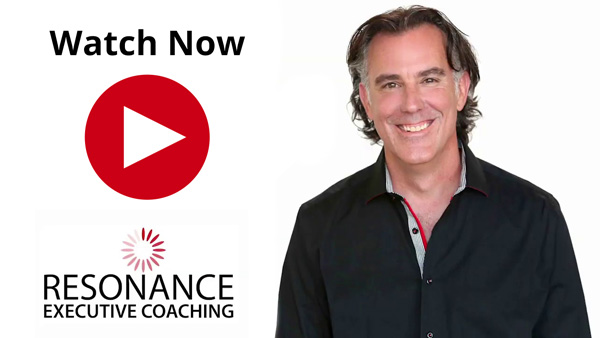Just because leadership doesn’t come with instructions doesn’t mean it has to be hard. That’s why our CEO, Daniel Kimble, wrote the book Unshakeable Influence: Mastering the Inner Game of Leadership in a VUCA World, to make it much easier for leaders to navigate the challenges they face in today’s Volatile, Uncertain, Complex, and Ambiguous (a.k.a. VUCA) world.
We work with our client’s leaders in many different ways. And all of our various approaches come down to this fundamental truth: Every leader goes through stages of evolution in their learning curve as a leader. To clearly illustrate the point, we highlight what each leadership level looks and feels like and outline the typical business impact of each leadership level.
Every leader we work with becomes aware – through our tools – of where they are at in their evolution and how that is impacting their organization’s bottom line. That understanding helps them codify their leadership ability in business terms, and clearly see the pay-off of developing themselves as leaders.
Our Approach to Leadership Development

At the end of the day, leadership comes down to every leader’s ability to maximize the return on investment in their organization’s most valuable and strategic asset – their people.
The new leadership paradigm of the 21st century requires a fundamentally different approach to leadership. In today’s world, leaders can no longer rely on their positional authority, they must become much more proficient with their relational authority. Relational authority is a leader’s capacity to inspire, motivate, and develop others through who they are being as a leader more than the position/title they hold in the organizational hierarchy.
People don’t want to just take orders from their superiors. They want to believe in their leaders wholeheartedly. Only then will they consistently do their best work. Only then will they go the extra mile when it really counts. Only then will they be inspired to stay with the organization long term.
Based on our CEO’s Amazon 5-Star rated book Unshakeable Influence: Mastering the Inner Game of Leadership in a VUCA World, we help our clients raise the bar on their organization’s leadership abilities by developing their leaders from the inside out.
Only when leaders improve their Inner Game of Leadership can they then improve their outer game of leadership – their relational authority – in a truly sustainable way. That’s how the leaders we work with achieve Inspired Leadership and thereby drive the best business results in their organizations.
Simply put, we believe our approach to leadership development – cultivating relational authority from the inside out – is paramount to any leader’s ability to consistently bring out the best in their people.
Who We Work With

Our clients are committed to maximizing their performance, and they recognize that even the sharpest knife cannot carve its own handle. As our new clients get to know us, they come to understand the tremendous business value of bringing our holistic people expertise into their organization. They also learn that we can lead a horse to water but we cannot make them drink. They know that at the end of the day, their organization has to take responsibility for their own greatness. We can only guide them there.
How We Work With You

Our process is designed to meet our clients where they’re at and work with them toward a mutually inspiring and high impact solution. Every client need is unique and thus our process flow of working with clients varies depending on the needs of the client and the depth of our prior relationship with our client.
With that said, all of our client engagements follow this high level flow.
It all starts with a conversation.
Step 1
Initial Conversation
Discuss your high level needs, identify likely root causes, and discuss potential solutions.
Step 2
In-Depth Discovery Conversation
Take a deeper dive into your needs and discuss our custom solution to address the true root causes. Agree on a specific direction for the solution and discuss "ballpark" pricing and timing of engagement.
Step 3
Finalize Scope of Work
Agree on exact scope of work and define program phases (if any). Finalize all agreements and investment level required.
Step 4
Implementation
Co-execute all deliverables with client.
Step 5
Integration
Ensure integration of the learning by co-executing customized action steps to hold learners accountable and maximize sustainability of the learning.
Step 6
After Action Review and Debrief
Meet with senior stakeholders to share insights and observations. Discuss success metrics and best practices for the sponsoring executive to maximize the ROI of this engagement.
Start a conversation with us.

Leadership Development Programs
Our leadership development programs range from front-line manager development programs to C-Suite development programs – and everything in between. Each of our programs is designed to meet the exact leadership development needs for the intended audience.
Moreover, all of our leadership development programs are co-created with our clients through our discovery, audit, and design process that may include:
- Key stakeholder meetings
- 1:1 interviews
- Anonymous qualitative surveys
- Our quantitative tools
Through our discovery, audit, and design process, we identify the true root causes of leadership development gaps and then design programs to rapidly address the highest value gaps in a customized way for the specific leaders who are going through each program.
Our leadership programs can include 1:1 coaching for any level of the organization, standalone workshops to deep dive into one key topic, and cohort-based leadership development programs that span 3-12 months and deep dive into multiple leadership skills. All programs can be delivered virtually, face-to-face, or hybrid.
Click below for more details:
- Coaching For Everyone
- Manager Development
- Executive Development
- CXO Development
- CEO Development
- CEO Coaching Case Study

Coaching For Everyone
The main ingredient for maximum success in any coaching engagement is the level of hunger and desire that each client has. The more the client “wants it” and really dedicates themself to the work of becoming their best selves, the more they tend to get out of coaching. That’s why pretty much anyone can experience tangible benefits from coaching. Some organizations want to create more of a coaching culture and make coaching available to nearly everyone. Other organizations want to offer coaching to all employees as a differentiating benefit in a very tight labor market.
Today’s employees expect more from their employers than ever before. They don’t just want a paycheck, they want fulfillment, they want meaningful work, and they want to believe that their employer is investing in their future. Today’s best employees have lots of options to go elsewhere. Offering coaching to everyone can be a key differentiating benefit to help retain your best people and drive more robust employee performance and well-being.
Some common coaching topics at this level include:
- Work/life balance
- Emotional regulation
- Learning to thrive in a VUCA environment
- Resilience
- Physical, mental and emotional health
- Courageous conversations
- Deepening our sense of meaning and purpose in life
- Connecting our day to day work to our higher purpose
- Navigating working from home and/or hybrid work situations
Start a conversation with us.
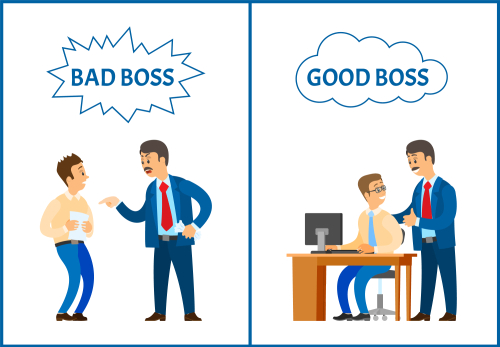
Manager Development
Managers have their own unique needs for development. Brand new managers typically become managers because they were strong individual contributors. Individual contribution and managing others are two different animals, and yet many new managers are expected to be able to transition into managing others with little or no training on how to do it effectively. Moreover, even when training is offered for new managers it typically focuses mostly on the bureaucratic and tactical aspects of management.
Managers are often the hungriest to learn how to lead because they know they don’t know what they’re doing. But they’re just not getting the training, coaching, and overall support they need. It’s simply an unfortunate truth that very few new managers get enough support on the most important aspect of their job: How to influence others to do their best work.
Moreover, you only get one chance at a first impression. If you thrust a great individual contributor into a management role without giving them the support they need, they will likely flounder. In doing so, they will have a significant negative impact on their subordinates and the entire organization. They are also likely to feel unsatisfied with your organization’s lack of support in their success and may then become more interested in exploring career opportunities with other companies.
Consider that:
- 70% of the people who leave your organization do so primarily because of their relationship with their immediate supervisor
- 87% of new managers wish they’d had more training when they were new
- 99% of employers offer some kind of management training
Clearly there’s a serious disconnect between what companies typically offer to new managers and what is needed for them to be most successful. This is where Resonance’s management development programs come in. Our coaches working with first time or relatively new managers can provide them a wealth of information, best practice advice, and most of all help them learn how to think and behave like a manager whose primary role is motivating others to do their best work rather then getting stuff done themselves.
Common development topics at this level include:
- Managing in a virtual and/or hybrid environment
- Managing in today’s VUCA world
- Building a strong team
- The conversations you need to be having as a manager
- Increasing trust between yourself and your team
- Providing feedback in a way that motivates and inspires
- Driving commitment, accountability, and results
- Delegation
- Operationalizing your team’s initiatives in a way that maximizes alignment with the organizational strategy
Start a conversation with us.

Executive Development
Leaders who are director level and above (but not yet in the C-Suite), require a more sophisticated level of development. Leaders at this level have typically been managing anywhere from 5 years to perhaps 15 years or longer. They’ve got their feet under them as managers and are generally no longer struggling too much with the basics of leadership.
Often times, the things they struggle with are more about:
- Knowing how to consistently lead the team to build and execute the strategy on-time and on-budget
- Building outstanding teams
- Managing “up” more effectively
- Cultivating more effective relationships with their peers
- Navigating office politics effectively and with integrity
- Delegating more often, and truly letting others run with a project rather than micro-managing
- Coaching, mentoring, and developing others so that they become highly capable and trusted contributors
- Learning how to be more assertive without being over-bearing or controlling
- Holding others accountable and challenging them to do their best work, but in an inspiring way
- Making optimal hiring decisions
These leaders are more savvy and require more experienced coaches who know what is required to be most effective at this level, and may have even walked a mile in their shoes.
Start a conversation with us.
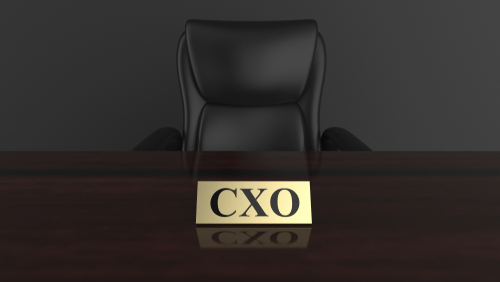
CXO Development
C-Suite leaders have unique demands on their skills that are substantially different than less senior executives. C-Suite leaders are responsible for entire business units, entire functional areas, and huge portions of the organization’s ultimate success.
Like CEOs, CXOs have, by definition, an extremely small set of peers. Those who are their peers may be seen as competitors and not too entirely trusted. Leadership does not come with instructions, and nowhere is this more true than in C-Suite. C-Suite leaders need to understand the technical aspects under their purview. They need to understand the business aspects of all areas of the business. They need to be seen as strategic partners to their peers, to the CEO, and to the board. They need to have a strong team underneath them so that they can operate at the strategic level that their job requires. They need to know how to navigate office politics expediently and effectively. They need to form strong relationships with their peers, but often cannot fully trust any of their peers. They need to embrace uncertainty because they cannot possibly control everything in their purview. They absolutely must scale themselves as leaders.
If a CXO is to be effective in their role, they also need to be an inspiring leader who leads by exquisite example. Because everything they do at this level is very carefully scrutinized by everyone in the organization. People pay far more attention to what a C-Suite executive does than to what they say. Employees want to believe in their C-Suite, yet often as a product of their experiences they are inclined to be skeptical of anyone in the C-Suite.
C-Suite coaches understand what it takes to not just be effective in the C-Suite, but to really thrive in this role. They’ve worked with C-Suite executives for some time and know how to quickly gain their respect and trust, provide expert advice and guidance, and help them grow into the leader they need to become if they are to succeed at this high of a level.
Start a conversation with us.
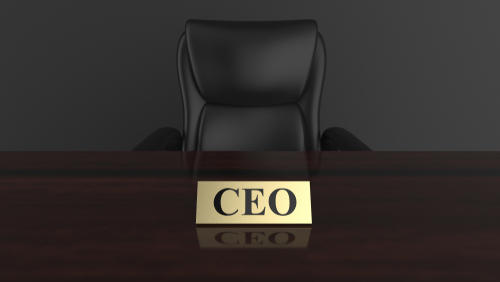
CEO Development
CEOs have, by far, the largest impact on their organization’s success or failure. For example, organizational culture trickles down from the top. The behaviors, beliefs, attitudes, and ways of interacting that the CEO models will have an outsize influence on the entire organization. Additionally, all decision-making, productivity, and financial results are most influenced by the organization’s most senior leader. In short, all responsibility for the entire organization ultimately falls on the CEO’s shoulders.
Additionally, by being at the top of the organizational chart, CEOs have attained a level of success and responsibility that very few in the world have ever achieved. It’s lonely at the top is not just a saying, it’s the truth. Very few people can truly relate to a CEO, let alone serve as a trusted advisor, be willing to speak the difficult truth to them, call them on their BS, and generally support them to be their very best.
CEOs need a special kind of executive coach. Not just any executive coach, but a CEO coach. This is a coach who is uniquely qualified to effectively coach an organization’s most senior leader. These coaches have an ability to cut-to-the-chase in a direct and concise manner. They are not intimidated by power. In fact, they know well the trappings of power that too many CEOs fall prey to. They also know everything they need to know about what it takes to effectively run an entire organization, including corporate governance, how to work with the board, how to work with investors, and how to work with the press. While they may not have been a CEO themselves, they’ve worked with enough CEOs to truly understand a CEO’s unique needs and how to best serve them.
Start a conversation with us.
CEO Coaching Case Study
Challenges
- CEO and co-founder of a technology company in Silicon Valley with a short fuse and a tendency to lash out when angered. One very key senior executive had already left the company as a result.
- CEO came from a military leadership background and was super smart, quick on his feet, cared about his people and could be inspirational. But his anger issues got in his way.
Solutions
- Our CEO coached this CEO 1:1 for 9 months
- Process included extensive 1:1 interviews with key executives, board members, clients, and investors
- Based on the qualitative feedback gathered, the CEO began to better understand the severe negative impact of his angry outbursts
- Over time CEO learned how to channel his anger in much more constructive ways
Results
- CEO improved his emotional intelligence such that he’s now able to much more consistently use his emotions to motivate and inspire
- People now say he’s the primary reason they want to stay with the company
- 18% improvement in organizational attrition rate
- 23% improvement in executive team attrition rate
